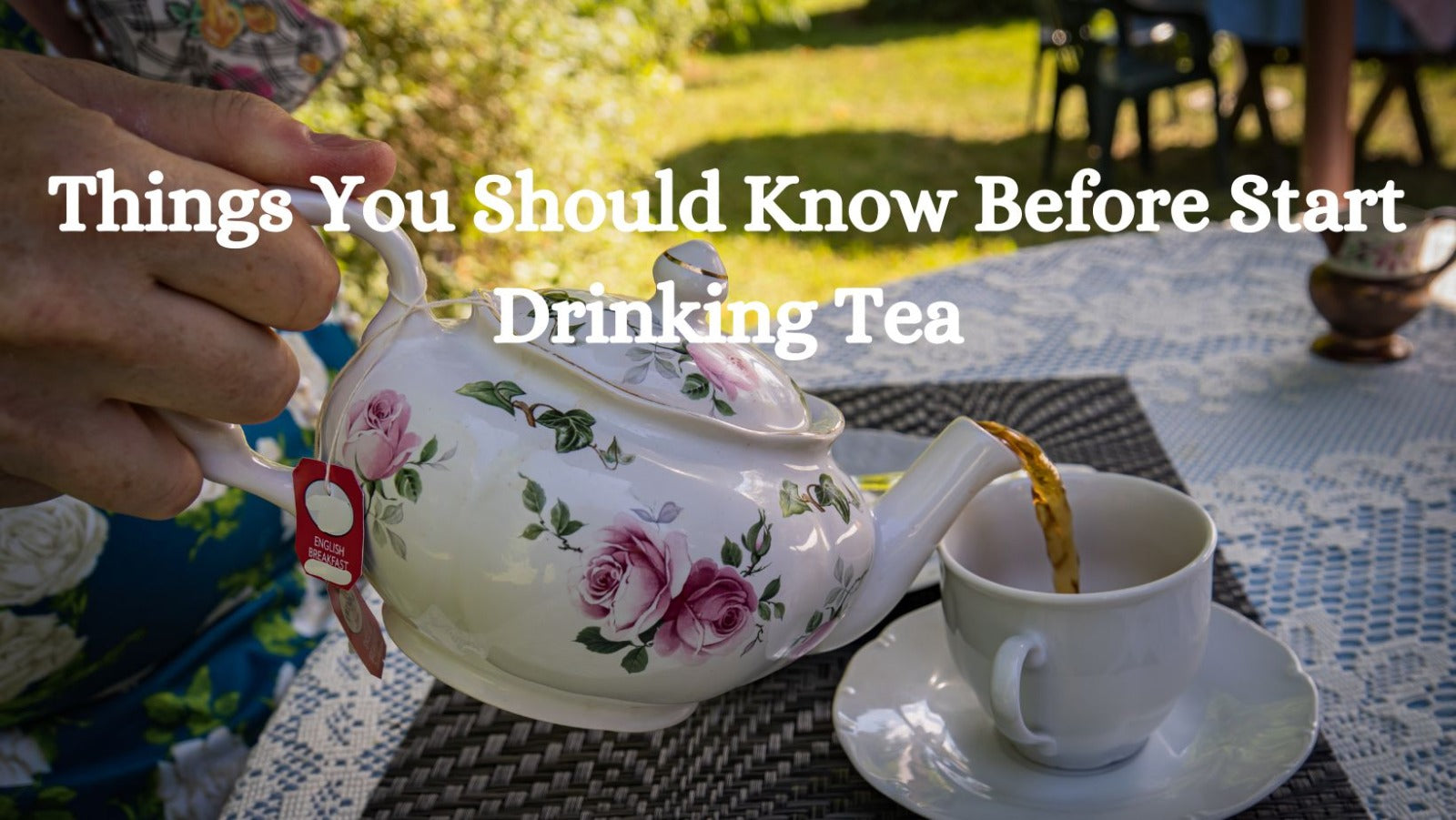Are you a tea lover who is also conscious of your caffeine intake? If so, you may be wondering what determines the caffeine content in tea. While many factors can influence caffeine levels, understanding the basics can help you make informed decisions about your favorite beverage.
Let's explore the key factors that contribute to the caffeine content in tea.
Types of Tea with High Caffeine Content
The type of tea you choose plays a significant role in the caffeine levels. Among the various tea types, black tea tends to have the highest caffeine content. This is because black tea leaves are more oxidized during processing, which results in a higher caffeine concentration. Oolong tea, which is partially oxidized, follows closely in terms of caffeine content. Green tea and white tea, on the other hand, have lower caffeine levels due to minimal oxidation during processing. Knowing the distinctions among these tea varieties can assist you in making a well-informed choice about your tea selection.
Types of Tea with Low Caffeine Content
If you are looking for a lower-caffeine option, you may want to consider herbal teas. Unlike true teas, herbal teas are not derived from the Camellia sinensis plant and therefore do not naturally contain caffeine. Popular herbal teas such as chamomile, peppermint, and rooibos offer a caffeine-free alternative. These teas are made from the infusion of various flowers, herbs, and spices, providing a wide range of flavors and health benefits without the stimulating effects of caffeine.
How Tea Processing Affects Caffeine Levels
The processing methods used to prepare the tea leaves can also impact the caffeine content. As mentioned earlier, black tea undergoes extensive oxidation, which results in higher caffeine levels. In contrast, green and white teas are minimally processed and retain more of their natural compounds, including catechins and amino acids, while having lower caffeine levels. The level of oxidation and overall processing techniques can significantly influence the caffeine content in tea.
How Your Brewing Method Affects Your Caffeine Intake
Aside from the type of tea selected, the brewing method can also impact the caffeine levels in your cup. Let's explore how different brewing methods can impact the caffeine content of your tea.
Steeping Time and Temperature
The longer tea leaves steep in hot water, the more caffeine will be extracted. If you prefer a stronger cup of tea with higher caffeine levels, you can increase the steeping time. However, it's essential to note that longer steeping times can also result in a more bitter and astringent taste. Additionally, higher water temperatures can extract more caffeine from the tea leaves. If you prefer a milder flavor with lower caffeine, you can opt for shorter steeping times and lower water temperatures. Finding the right balance between taste and caffeine content is key to enjoying your cup of tea.
Tea Bag vs. Loose Leaf Tea
The quality and size of the tea leaves can also impact caffeine extraction during brewing. Finely ground tea leaves, such as those found in tea bags or powdered teas, might release more caffeine compared to whole-leaf teas. Tea bags, which often contain smaller broken tea leaves, have a larger surface area exposed to water, resulting in faster caffeine extraction. On the other hand, loose-leaf teas, which consist of larger, intact tea leaves, may have a slower caffeine release due to their size and structure. Choosing between tea bags and loose-leaf teas can thus affect the caffeine levels in your brew.
The Myths and Facts about Decaffeinated Tea
Decaffeinated tea is often considered a caffeine-free alternative. However, it's important to understand that decaffeinated teas still contain trace amounts of caffeine. The decaffeination process removes most of the caffeine but cannot eliminate it. The residual caffeine levels in decaffeinated teas can vary depending on the specific method used during processing. While decaffeinated tea may offer a lower caffeine option, it's essential to be aware of the potential presence of small amounts of caffeine.
Health Effects of Caffeine in Tea
Caffeine, when consumed in moderation, can offer various health benefits. Yet, consuming too much caffeine can result in negative outcomes. Let's explore the potential health effects of caffeine in tea.
Positive Health Effects
Caffeine helps increase alertness and reduce fatigue, stimulating the central nervous system. It can improve cognitive function, enhance focus, and uplift mood. Additionally, caffeine has been associated with increased metabolism, which may aid in weight management. Some studies suggest that the antioxidants present in tea, including catechins, can contribute to overall health and reduce the risk of chronic diseases such as heart disease and certain types of cancer.
Potential Negative Health Effects
While caffeine can have its benefits, consuming too much can result in negative effects like insomnia, restlessness, and an increased heart rate. Individuals with certain health conditions, such as anxiety disorders or heart problems, may be more sensitive to caffeine's stimulating effects. Being aware of your caffeine consumption and paying attention to how your body reacts is important. Moderation is key when it comes to enjoying the health benefits of tea without experiencing adverse effects.
How to Reduce Caffeine Intake in Tea
If you are looking to reduce your caffeine intake while still enjoying tea, there are several strategies you can consider.
Opt for Herbal or Decaffeinated Teas
As mentioned earlier, herbal teas and decaffeinated teas offer caffeine-free or reduced caffeine alternatives. Choosing these options can help you enjoy a cup of tea without the stimulating effects of caffeine. Herbal teas provide a wide range of flavors and health benefits, while decaffeinated teas retain the taste and aroma of traditional teas with lower caffeine levels.
Blend Tea with Herbal Infusions
Another way to reduce caffeine content is by blending your tea with herbal infusions. By combining tea leaves with caffeine-free herbs and spices, you can create unique flavor profiles while decreasing the overall caffeine concentration. Experimenting with different blends can allow you to tailor your tea to your preferences and caffeine tolerance.
Shorten Steeping Time and Lower Water Temperature
Adjusting your brewing method can also help reduce caffeine levels. Shorter steeping times and lower water temperatures result in less caffeine extraction. This approach allows you to control the caffeine content in your cup while still enjoying the flavors and aromas of your favorite tea.
Conclusion: Enjoying Tea While Being Mindful of Caffeine Content
Tea is a delightful beverage enjoyed by millions worldwide. Understanding the factors that contribute to caffeine content and how brewing methods can affect it allows you to make informed choices about your tea consumption. Whether you prefer high-caffeine black tea or opt for caffeine-free herbal infusions, there are plenty of options to suit your taste and caffeine preferences. By being mindful of your caffeine intake, you can continue to savor the flavors, aroma, and health benefits of tea without any surprises. So go ahead, brew a cup, and enjoy your tea journey while staying aware of the caffeine content.




